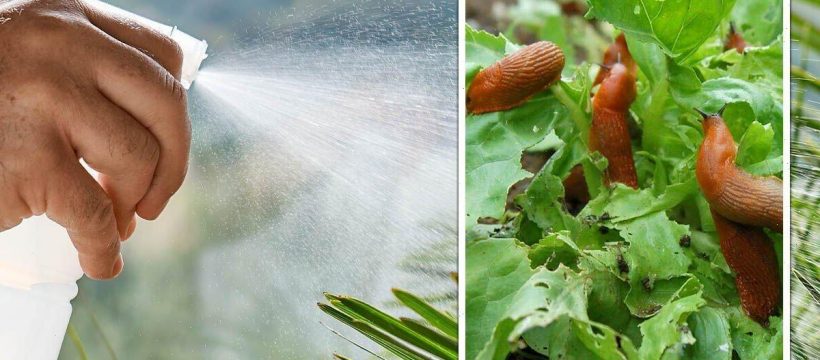This Morning: Alice Beer shares tips for removing pests
We use your sign-up to provide content in ways you’ve consented to and to improve our understanding of you. This may include adverts from us and 3rd parties based on our understanding. You can unsubscribe at any time. More info
Common insects and bugs can be a real nuisance in the garden. Slugs, wasps and mosquitoes, in particular, can make spending time outdoors unenjoyable. For Britons who are looking to spend time outdoors without being bothered by pests, outdoor experts from GardenBuildingsDirect.co.uk have shared their natural tips for getting rid of common garden pests without causing them any harm.
Block them
Creating barriers around certain plants can help keep certain bugs away.
Putting a barrier around a young or weaker plant could help stop the leaves from getting eaten by certain pests.
Gardeners can use cardboard toilet roll boxes or a light coating that doesn’t block the sun to cover shoots or growing vegetables.
The wall will prevent certain pests from damaging the plant.
READ MORE: How to sharpen your lawn mower blades – safest method

Smells
Smells that may not seem unpleasant to us can be off-putting to aphids and ants.
Spearmint plants or pennyroyal in the garden can keep pests away while allowing gardeners to enjoy eating al fresco in their gardens.
Wasps and hornets are another garden pest that can make sitting in the garden unenjoyable.
Spray garden areas with peppermint oil diluted in water (one part to five) to repel them.
Mosquitoes love to swarm on warm evenings which means gardeners can often wake up with bites the next morning.
DON’T MISS
Weeding tips: ‘Super effective’ way to naturally kill paving weeds [INSIGHT]
‘They won’t come back’: How to remove dandelions from lawns [UPDATE]
I tried the £1 air fryer cleaning hack – the results were astounding [ANALYSIS]
Instead of using chemicals, crushed lavender leaves can help repel the critters.
Rub the mixture on areas that are particularly sensitive and susceptible to bites.
The fragrance and oils help to repel adult mosquitoes.
Lavender also has analgesic, anti-fungal, and antiseptic qualities, meaning it will also calm and soothe the skin.
Natural insecticides
While natural, these insecticides are still poisonous to pests and should only be used as a last resort if gardeners are struggling with pests.
Looking for a new home, or just fancy a look? Add your postcode below or visit InYourArea
However, compared to chemical pesticides, natural insecticides have fewer toxic effects and are better for the environment.
Natural insecticides like pyrethrum can be sprayed on vegetables, flowers, ornamentals, and indoor plants to kill a range of pests.
These have an impact on aphids, flea beetles, flies and spider mites.
Salt
Slugs can cause wide-spread devastation to crops and plants.
They munch holes in leaves, stems, flowers and even bulbs.
As well as using beer traps, gardeners can oust slugs using coarse sea salt.
Putting a layer of coarse sea salt on the ground around vulnerable plants will kill slugs instantly.
Sprays
A “foolproof” way to oust ants is using a spray solution.
A 50/50 solution of vinegar and water in a spray bottle should kill any ants.

The spray is also a “significant deterrent” to keep ants away when sprayed around windowsills, doorways and other entry points into the home.
Ants dislike the scent of vinegar and removes the scent trails that they use to get around.
A spokesman for GardenBuildingsDirect.co.uk said: “As we all head to our gardens and outdoor spaces, it is inevitable that pesky bugs will interrupt our fun at some point.
“This guide will prevent you from getting bugged whilst out in the garden and will help keep some of the more common pests out of the way of BBQs, picnics and good times.
“However, the repellent used will purely depend on the bug that is bothering you.
“Certain insects are susceptible to minty scents, whereas others need their path blocking to be kept away from precious plants, veggies and trees.”
Source: Read Full Article
